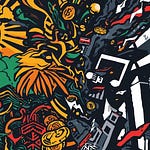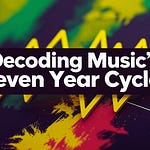Dear Reggaeologists!!
Imagine this: Your song, the one you poured your soul into at 3 AM in a dimly lit studio, just got played at a packed club in Tokyo. Simultaneously, it's streaming on phones in London, while a producer in New York is sampling your hook for the next summer anthem.
Your music is quite literally echoing across the globe – but here's the million-dollar question: Are you getting paid for any of it? For countless artists, the answer is a devastating "no." The reason isn't piracy, nor is it unscrupulous managers.
Instead, it's the absence of a simple but powerful code that most musicians have never heard of: the International Standard Musical Work Code (ISWC).
This silent guardian of artists' rights could be the difference between watching your music thrive while your bank account withers, and building a sustainable career from your creativity.
The truth about today's music industry is both thrilling and terrifying. Your music can reach more ears than ever before in human history – millions of plays, countless shares, infinite possibilities.
But with this unprecedented access comes a shadow side: the complexity of tracking and collecting what you're owed.
Every day, millions in royalties go unpaid or end up in what the industry calls "black boxes" – pools of money that never reach their rightful owners.
The culprit? Missing or inadequate metadata, with ISWC being the most crucial missing piece.
The Silent Crisis in Global Music Rights
Think of your music as a message in a bottle, but instead of one bottle, you're casting thousands into the digital ocean every day. Each stream, each play, each sample is a bottle carrying your creative work.
Without an ISWC, these bottles have no return address.
They drift endlessly in the vast digital sea, carrying your art but unable to bring back the recognition and compensation you deserve.
The Reggae Revolution: A Cautionary Tale
The reggae community's struggle with royalty collection serves as a powerful warning. Consider the story of "Rivers of Babylon" – a song that began its journey in Jamaica, became a global phenomenon, and spawned countless versions.
Yet many of the original creators struggled to claim their rightful royalties.
This isn't an isolated incident.
Reggae, with its rich tradition of versioning and its profound global influence, has seen generation after generation of artists watch their creations spread worldwide while their compensation remained local.
Understanding ISWC: Your Musical DNA
An ISWC is more than just another industry acronym – it's your music's DNA code.
This unique identifier stays with your composition forever, unchanging whether it's performed by a street musician in Barcelona or remixed by a DJ in Mumbai. It's the digital thread that connects every use of your music back to you, ensuring that when your creation generates value, you can claim your share.
The Three Pillars of ISWC Protection
Global Recognition
When your composition has an ISWC, it speaks a language every music industry professional understands. From performing rights organizations to streaming platforms, this universal identifier eliminates confusion and ensures proper attribution across borders and languages.
Perpetual Connection
Unlike copyright registrations that can expire or contracts that can be disputed, your ISWC is permanent. It creates an unbreakable link between you and your work, lasting long after the latest streaming platform has come and gone.
Automated Tracking
In an age where your music might be played millions of times across dozens of platforms, manual tracking is impossible. Your ISWC enables automated systems to identify, track, and report every use of your composition, ensuring no play goes unnoticed.
The Digital Age Reality Check
The streaming era has transformed how music generates revenue. Your income no longer comes in predictable album-sized chunks – instead, it arrives as thousands of micro-payments from countless sources. Without an ISWC, tracking these payments becomes nearly impossible. It's like trying to collect rain in a sieve – the money falls through the cracks, lost forever.
Taking Action: Protecting Your Musical Legacy
The process of securing your ISWC might seem daunting, but it's far simpler than watching your hard work go uncompensated. Here's your roadmap to protection:
For New Compositions
Make ISWC registration part of your release routine. Before your music goes public, ensure it has this crucial identifier. Think of it as essential as mastering or artwork – because in today's industry, it is.
For Existing Works
Conduct an audit of your catalog. Contact your performing rights organization (PRO) and verify which of your works have ISWCs. For those that don't, start the registration process immediately. Every day without protection is a day you might be losing royalties.
The Future of Music Rights
As we move deeper into the digital age, with artificial intelligence and new technologies reshaping how music is created and consumed, proper rights management becomes even more critical. Your ISWC is your stake in this future, ensuring that as new uses for music emerge, you're positioned to benefit.
Don't let your music drift unprotected in the digital sphere. Contact your PRO today to begin the ISWC registration process. If you're already registered, verify that all your works have proper ISWC assignments. Remember: in today's music industry, proper documentation isn't just administrative busy work – it's the foundation of a sustainable career.
*"Your creativity deserves more than recognition – it deserves protection. Your ISWC is the key to ensuring your musical legacy endures and thrives in the digital age."*
Until then, keep creating, and protect what you create.
Lloyd 'Reggaeology' Laing
Music Business Analyst and Advocate for Fair Pay. Follow @Reggaeology Everywhere











